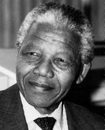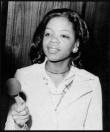One woman from the gezegde
 |
 |
Aantal gezegden is 2100216
varav 1407627 på engelska
Gezegde (2100216 st) Zoek
Categoriën (3944 st) Zoek
Auteurs (201357 st) Zoek
Afbeeldingen (4592 st)
Geboren (10498 st)
Gestorven (3319 st)
Datums (9520 st)
Landen (27259 st)
Idiom (4439 st)
Lengths
Toplists (6 st)
Denna sidan visar ordspråk som liknar "One woman from the Congo talked about children running wild in the bush, outcast because their parents died of AIDS. She tries to persuade them to take food from her hands...and then, as she goes walking into the bush, she sees these shallow graves where children bury children. She takes them back to her home to give them a proper burial...These are AIDS orphans, children raising children with no values, no direction. What will become of them?".
Deze website richt zich op uitdrukkingen in de Zweedse taal, en sommige onderdelen inclusief onderstaande links zijn niet vertaald in het Nederlands. Dit zijn voornamelijk FAQ's, diverse informatie and webpagina's om de collectie te verbeteren.
Här har vi samlat citat sedan 1990!
Vad är gezegde?
Hur funkar det?
Vanliga frågor
Om samlingen
Ordspråkshjältar
Hjälp till!
varav 1407627 på engelska
Gezegde (2100216 st) Zoek
Categoriën (3944 st) Zoek
Auteurs (201357 st) Zoek
Afbeeldingen (4592 st)
Geboren (10498 st)
Gestorven (3319 st)
Datums (9520 st)
Landen (27259 st)
Idiom (4439 st)
Lengths
Toplists (6 st)
Denna sidan visar ordspråk som liknar "One woman from the Congo talked about children running wild in the bush, outcast because their parents died of AIDS. She tries to persuade them to take food from her hands...and then, as she goes walking into the bush, she sees these shallow graves where children bury children. She takes them back to her home to give them a proper burial...These are AIDS orphans, children raising children with no values, no direction. What will become of them?".
Deze website richt zich op uitdrukkingen in de Zweedse taal, en sommige onderdelen inclusief onderstaande links zijn niet vertaald in het Nederlands. Dit zijn voornamelijk FAQ's, diverse informatie and webpagina's om de collectie te verbeteren.
Här har vi samlat citat sedan 1990!
Vad är gezegde?
Hur funkar det?
Vanliga frågor
Om samlingen
Ordspråkshjältar
Hjälp till!
 |
Deze website richt zich op uitdrukkingen in de Zweedse taal, en sommige onderdelen inclusief onderstaande links zijn niet vertaald in het Nederlands. Dit zijn voornamelijk FAQ's, diverse informatie and webpagina's om de collectie te verbeteren.
Här har vi samlat citat sedan 1990!
Vad är gezegde?
Hur funkar det?
Vanliga frågor
Om samlingen
Ordspråkshjältar
Hjälp till!
 |

